
-
Vind de juiste voeding voor uw huisdierDoe de quiz en ontdek welke voeding het beste bij uw viervoeter past.Vind de juiste voeding voor uw huisdierDoe de quiz en ontdek welke voeding het beste bij uw viervoeter past.Gezondheids categorieAanbevolen producten
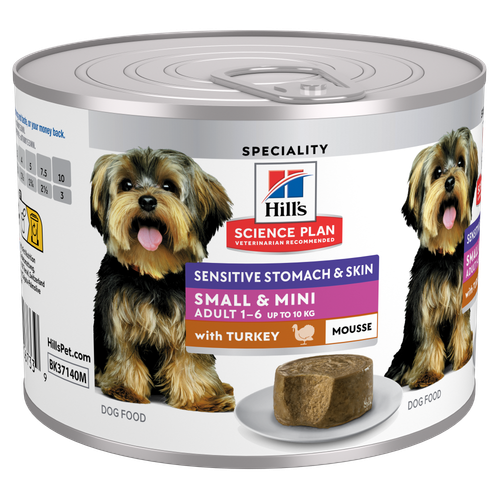 Sensitive Stomach & Skin Small & Mini Adult hondenvoer met Kalkoen
Sensitive Stomach & Skin Small & Mini Adult hondenvoer met KalkoenHill's Science Plan Sensitive Stomach and Skin Small & Mini Adult Natvoer Hond met Kalkoen is een compleet premium dierenvoer voor volwassen honden van een klein ras van 1 tot 6 jaar oud. Deze heerlijke zachte mousse is verrijkt met ingrediënten die de spijsvertering en de verzorging van de huid ondersteunen.
Shop Now Sensitive Stomach & Skin hondenvoer met Kip
Sensitive Stomach & Skin hondenvoer met KipHill's Science Plan Sensitive Stomach & Skin Adult Natvoer Hond met Kip is een compleet premium hondenvoer voor volwassen honden vanaf 1 jaar. Deze smaakvlolle paté uit blik is verrijkt met ingrediënten die de spijsvertering en de verzorging van de huid ondersteunen.
Shop Now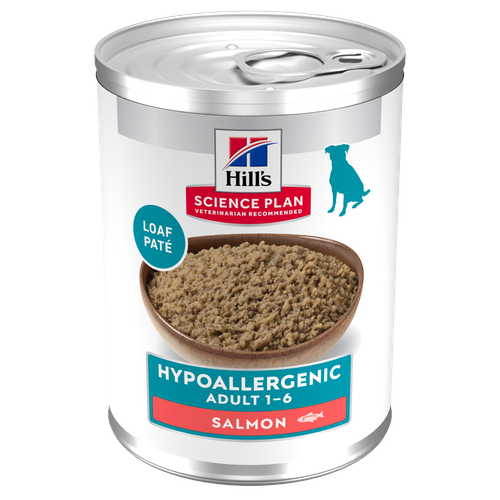 Hypoallergenic Adult Natvoer
Hypoallergenic Adult NatvoerHill's Science Plan Hypoallergenic Adult Natvoer Hond met Zalm is een compleet premium dierenvoer voor alle volwassen honden vanaf 1 jaar. Deze smaakvolle paté uit blik is speciaal samengesteld voor honden met een gevoelige huid en maag. Het bevat één nieuwe dierlijke eiwitbron en is graanvrij.
Shop NowGezondheids categorieAanbevolen producten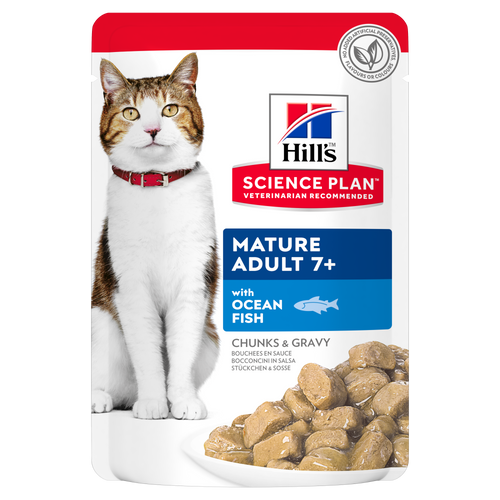 Mature Adult Natvoer Kat met Zeevis
Mature Adult Natvoer Kat met ZeevisMalse brokjes in saus voor oudere katten. Met licht verteerbare ingrediënten, eiwitten van hoge kwaliteit om spiermassa te behouden en antioxidanten vitamine C + E voor een optimale gezondheid.
Shop Now Healthy Cuisine Sterilised Cat Adult Stoofpotje voor Katten met Kip & toegevoegde Groenten, met Zalm & toegevoegde Groenten
Healthy Cuisine Sterilised Cat Adult Stoofpotje voor Katten met Kip & toegevoegde Groenten, met Zalm & toegevoegde GroentenHill's Science Plan Healthy Cuisine Stoofpotjes zijn 100% gebalanceerd en gezond, samengesteld met een onweerstaanbare smaak waar katten dol op zijn.
Shop Now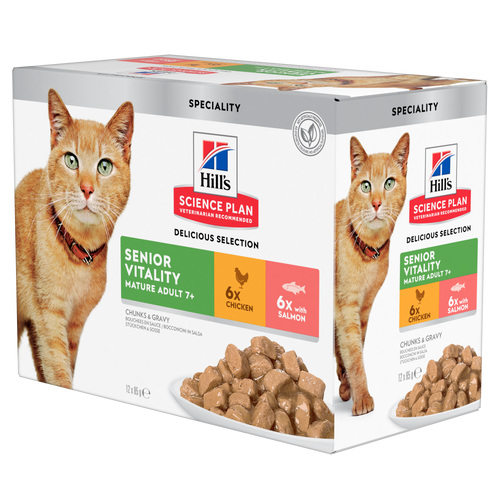 Senior Vitality Mature Adult Natvoer Kat Kip & met Zalm
Senior Vitality Mature Adult Natvoer Kat Kip & met ZalmMalse brokjes met kip in saus voor oudere katten, ter ondersteuning van de veroudering, vitaliteit en hersenfunctie. Met licht verteerbare ingrediënten van hoge kwaliteit en vitamine E en omega 6-vetzuren voor een glanzende vacht.
Shop Now -
Hond
- Hondentips & artikelen
-
Hond gezondheids categorie
- Gewicht
- Voedsel- & milieugevoeligheden
- Urinewegen
- Spijsvertering
- Gewrichten
- Nieren
- Herstellende zorg
- Mondverzorging
-
Hond levensstadium
- Puppyvoeding
- Volwassen voeding
- Senior voeding
Kat- Kattentips & artikelen
-
Kat gezondheids categorie
- Gewicht
- Huid- & voedselgevoeligheden
- Urinewegen
- Spijsvertering
- Nieren
- Haarbal & perfecte vacht
- Herstellende zorg
- Mondverzorging
- Stress
-
Kat levensstadium
- Kittenvoeding
- Volwassen voeding
- Senior voeding
Uitgelichte artikelen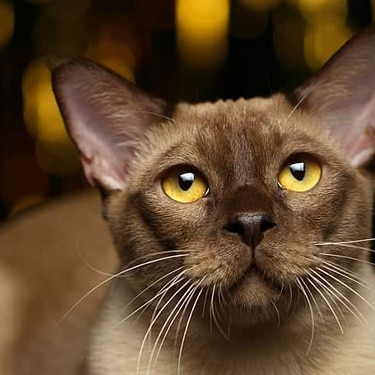 Realistische goede voornemens voor jou en je huisdier | Hill's Pet
Realistische goede voornemens voor jou en je huisdier | Hill's PetAan het einde van het jaar maken veel mensen goede voornemens voor het nieuwe jaar: ze willen bepaalde gewoonten aanleren (of afleren) om het jaar gezond en gelukkig te beginnen.
Read More Virtual Vet Visits: What You Need to Know
Virtual Vet Visits: What You Need to KnowLearn the ins and outs of a televet appointment before you talk to a vet online.
Read More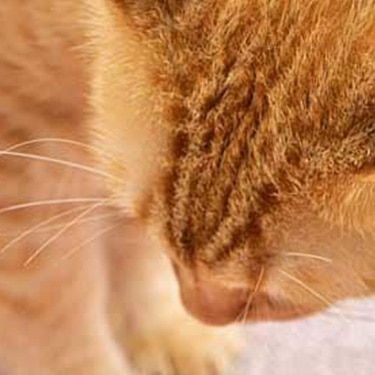 Urinekristallen en -stenen bij honden en katten
Urinekristallen en -stenen bij honden en kattenLees over de oorzaken en behandelingen van urinekristallen bij honden en katten, om je huisdier gezond te houden. Bezoek Hill's voor deskundig advies over verzorging van de urinewegen.
Read More -

 Wetenschappelijk onderbouwde voeding creëert verschillen die u kunt vertrouwen.
Wetenschappelijk onderbouwde voeding creëert verschillen die u kunt vertrouwen.


Essential oils are having a moment, turning up in everything from cleaning and personal products to medical treatments and more. But what about cat products? Are there essential oil products for cats? And are essential oils suitable for cats? Here's what cat parents need to know.
Essential Oils: What Are They?
Essential oils are extracts of plants, such as rose and frankincense, known for their aromatic and/or medicinal properties and used in personal and household products. Note that these are different from essential fatty acids, which are important nutrients found in your cat’s food.
Essential oils are commonly used in aromatherapy, the practice of inhaling diffused oil or applying it topically to the skin, such as during a massage. The Liverpool University Hospitals NHS Trust explains that the scents and chemicals in the oils can “produce different emotional and physiological reactions” that may be helpful in reducing pain, relieving tension, and improving mood.
Personal and Household Use
With an uptick in online retailers and a renewed interest in natural health care, essential oils are more accessible than ever. People are incorporating them into everyday use in lots of different ways: cleaning sprays, hand sanitisers, fragrances, laundry detergents and skin moisturisers, to name just a few.
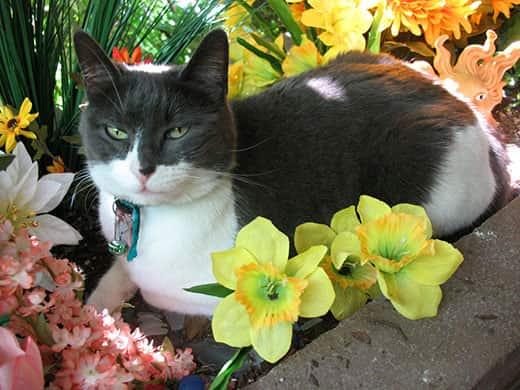
What does this all have to do with cats? When you have feline housemates, you want to create a safe household for cats, which means keeping harmful substances, such as essential oils, out of reach.


Smakelijke tips
Kittens hebben in hun eerste jaar mogelijk meerdere vaccinatiebezoeken nodig. Volwassen katten hebben doorgaans baat bij een jaarlijkse controle, terwijl oudere katten of katten met speciale behoeften mogelijk vaker op controle moeten.
Essential Oils Toxic to Cats
Much like some common houseplants that are toxic for cats, Cats Protection warns that the majority of essential oils are harmful to your cat. This is especially true when they’re very concentrated, but even small amounts can be toxic. According to the PDSA the following can be especially dangerous:
- Cinnamon
- Citrus oils
- Clove
- Eucalyptus
- Lavender
- Pennyroyal
- Peppermint
- Pine
- Sweet birch
- Tea tree
- Wintergreen
- Ylang ylang
Essential oils can be bought individually, but they often appear in other household products too, such as insect repellent and paint thinner/white spirit/”turps” (turpentine is an essential oil). Products like these can be extremely toxic to cats, notes International Cat Care.
Tea Tree Oil: A Special Warning
Tea tree oil in particular is very hazardous to cats. Tea tree oil spray is often promoted as a “natural” flea remedy for pets, but The Veterinary Nurse journal warns that tea tree oil can cause skin problems, serious neurological side effects, and even death in both cats and dogs. The risk is especially high when the oil is used undiluted, with just a few drops reported to have caused side effects. To be safe, never use tea tree oil on your cat (or your dog!).
Are Any Essential Oils Safe for Cats?
In short, there are no safe essential oils for cats. Cats Protection explains that exposure to essential oils can cause organ damage, liver failure, seizures and death in cats. This might happen via:
- Skin exposure, e.g. rubbing or spraying oil onto the cat’s fur/skin.
- Ingestion, e.g. the cat licking the oil from its fur/skin/paws or eating/licking something containing oils.
- Inhalation, e.g. the cat breathing in oils from a spray or cleaning product.
However, there are precautions you can take if you wish to use essential oils in the home. The PDSA and Cats Protection caution that products that spread essential oils into the air, such as reed diffusers, plug-ins, nebulisers and ultrasonic diffusers, may be risky as your cat can inhale the oils. Droplets of diffused oils can also land on your cat’s fur, so they could ingest oil while grooming. If you do use diffuser products, the PDSA recommends using them only in rooms where your cat can be kept out, and making sure the room is well-ventilated before allowing them back in.
Try to use cleaning and personal products without essential oils when possible. If you do use essential oils, make sure to dilute them to minimise the risk, and wash your hands thoroughly afterwards before you touch your cat. Cats are great at getting onto high surfaces and into small spaces, so make sure to store essential oils (and any products that contain them) out of your cat’s reach.
Finally, never use essential oils as a flea repellent or treatment for your cat; ask your vet for a recommendation or prescription product instead. If in doubt about using essential oils safely, speak with your vet for advice.
When to Call the Vet
According to the PDSA, symptoms of essential oil poisoning include:
- Dribbling or drooling excessively.
- Vomiting.
- Shaking or having tremors.
- Walking unsteadily.
- Seeming lethargic.
- Having difficulty breathing or wheezing.
- Collapsing.
- Having seizures.
Contact your vet or an emergency clinic immediately if you suspect your cat has ingested an essential oil and discontinue the use of any essential oil product you think may be causing their symptoms.


Christine O'Brien is schrijfster, moeder en al jarenlang kattenouder met twee Russische Blues die de dienst uitmaken in huis. Haar werk is ook te vinden in Care.com, What to Expect en Fit Pregnancy, waar ze schrijft over huisdieren, zwangerschap en het gezinsleven. Volg haar op Instagram en Twitter @brovelliobrien.
Gerelateerde producten

Malse brokjes met kip in saus voor oudere katten, ter ondersteuning van de veroudering, vitaliteit en hersenfunctie. Met licht verteerbare ingrediënten van hoge kwaliteit en vitamine E en omega 6-vetzuren voor een glanzende vacht.

Malse brokjes in saus voor oudere katten. Met licht verteerbare ingrediënten, eiwitten van hoge kwaliteit om spiermassa te behouden en antioxidanten vitamine C + E voor een optimale gezondheid.

Hill's Science Plan Healthy Cuisine Stoofpotjes zijn 100% gebalanceerd en gezond, samengesteld met een onweerstaanbare smaak waar katten dol op zijn.
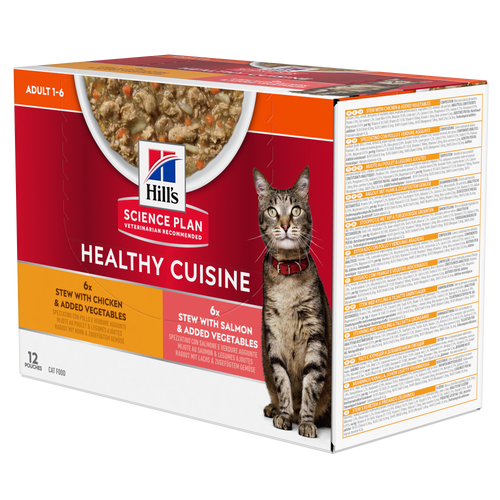
Hill's Science Plan Healthy Cuisine Stoofpotjes zijn 100% gebalanceerd en gezond, samengesteld met een onweerstaanbare smaak waar katten dol op zijn.
Gerelateerde artikelen
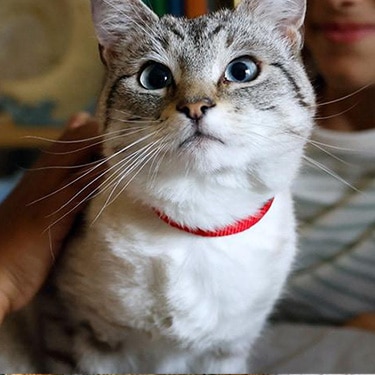
Ontdek wat je kunt doen om een gevoelige maag bij een kat te ontdekken en te verhelpen. Zie welke gewoontes en voer je kunt toepassen om je kat gelukkig en gezond te houden.
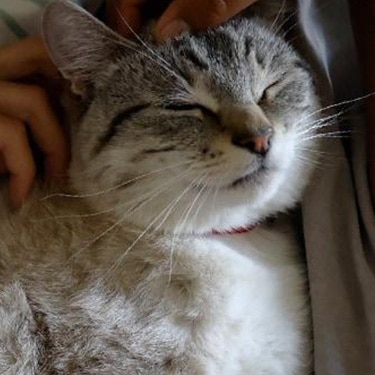
Leer meer over hoe je de spijsvertering van je kat kunt ondersteunen om de algemene gezondheid te verbeteren. Het eetpatroon is essentieel voor een lang en gelukkig leven van je kat, dus ontdek wat je kunt doen.
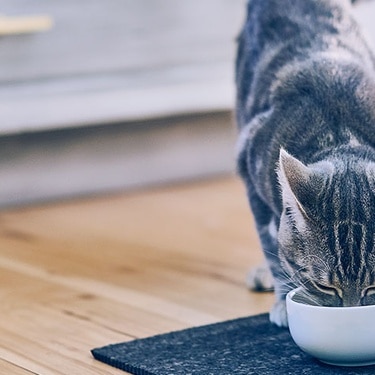
Good nutrition is about the right balance of nutrients. Learn more about health issues when feeding a cat food that has an improper nutritional balance from your friends at Hills Pet Nutrition.
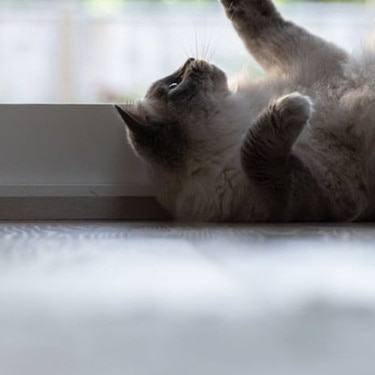
Je kat voeren is een prachtige kans om een band op te bouwen. Ontdek hoe je dit het beste doet en creëer een gezonde routine met Hill's.

Zet uw kat op dieet zonder dat hij het weet
Onze caloriearme formule helpt je het gewicht van je kat onder controle te houden. Het zit boordevol hoogwaardige eiwitten voor de opbouw van soepele spieren en is gemaakt met doelgerichte ingrediënten voor een smakelijke, voedzame maaltijd. Klinisch bewezen antioxidanten, vitamine C+E, dragen bij aan een gezond immuunsysteem.
Zet uw kat op dieet zonder dat hij het weet
Onze caloriearme formule helpt je het gewicht van je kat onder controle te houden. Het zit boordevol hoogwaardige eiwitten voor de opbouw van soepele spieren en is gemaakt met doelgerichte ingrediënten voor een smakelijke, voedzame maaltijd. Klinisch bewezen antioxidanten, vitamine C+E, dragen bij aan een gezond immuunsysteem.